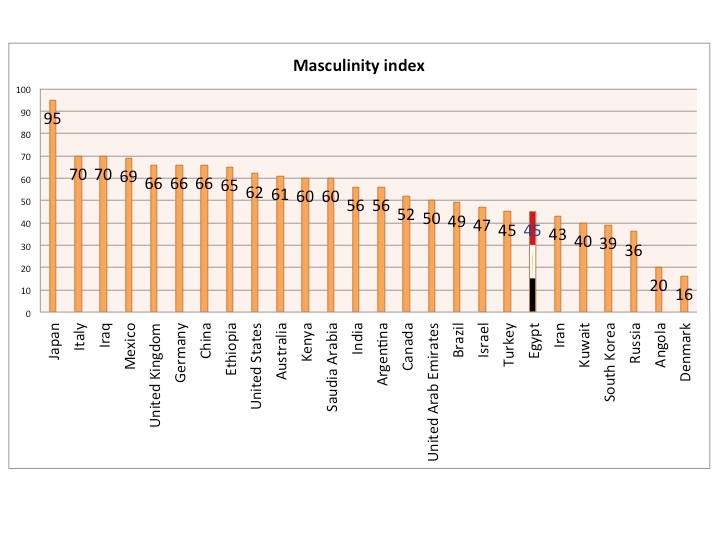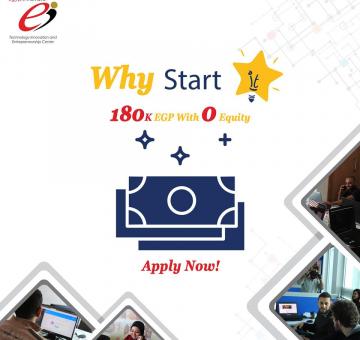Work To Live - The Egyptian Culture and Its Impact on Startups

This article is the third one in the same series of articles about the Egyptian culture's impact on startups. Check the first article here, and the second one here.
Mr. Mohsen: Hey Raafat how’s the new program going?
Raafat: Which program, sir?
Mr. Mohsen: The program we did for doctors to help them manage their clinics.
Raafat: There are no sales for this program sir, not even one version.
Mr.Mohsen: Why? Don't people like the program’s interface?
Raafat: No, sir. But they just don’t like to use computers in such cases.
Mr.Mohsen: Don’t they have computers in their clinics?
Raafat: Yes they have but they only use it in their researches and emails, but they don’t like this application.
Where’s the problem?!
The third indicator of Hofstede is called Masculinity. And this indicator, as it seems on its name, reflects the extent of the superiority of the characteristics of masculinity over the characteristics of femininity in the society. But the name is a bit misleading as it talks primarily about two contradictory characteristics, which are: does the society prefer power and professional success or prefer to maximize the value of enjoying life without much effort?. And here we should be aware that the higher the value of the indicator in a country, the more it means that the culture of the society lifts the masculine values. This applies to both genders in a society, which means both men and women prefer masculine characteristics such as competitiveness, achievement, and success. While the low indicator means the dominance of female values in the society (for men and women too), and this means values like caring for others and quality of life, meaning that this community considers that the measure of success is the quality of life.
Thus, we’ll be surprised that the countries we thought are at the top of masculinity may record a feminine scale. Russia, for example, records 36 in this scale, which means that the Russian society prefers the quality of life of professional excellence and thinks that the ultimate achievement is to live a luxurious life.
While we’ll find that the Japan scores 95, which means that the Japanese society maximizes the value of professional excellence and the tangible achievements in real life. And of course this is not a surprise; it’s enough to look at the quality of the Japanese products and the art the Japanese create in food and handicrafts.
This is one of the factors rooted in the Japanese conscience where children are raised in schools to compete for scientific and athletic excellence in successful teams. It is also rooted in Japanese companies that push employees to join teams that compete for the best product or service.
Egypt scores 45 on this indicator, which means that we’re more feminine country. Yes, this might be a surprise, but do you remember when success and competition were even a choice in the Egyptian environment?
This means that we are a society that prefers to live a good and decent life, even if that came at the expense of what we produce or do. We see this in a clear way in the way Egyptians prefer luxury cars like Mercedes and Cherokee whenever there is a chance for purchasing. And in the way they must travel every summer no matter what’s the income of the family, this is why good resorts are available for all classes of the society starting from Gamasa and Ras el-Bar to North Coast and Sharm el-Sheikh, while the rich travel abroad to Europe, Malaysia, Turkey, and Lebanon.
The Egyptian culture has a very positive feminine aspect which is caring for others, as we’re never late in helping others whenever we can. So you’ll find that the Egyptian solidarity is different and between all social standards starting from the monetary gift in the public weddings which is considered a necessity in the lower level community and may be the main factor in the completion of most marriages in this community, reaching very big projects that could’ve never happen without the contributions of both poor and rich people in Egypt such as 57357 hospital and the different activities of charity organizations like Resala, Orman, and Misr el Kheir.
But the important question is: How can this affect startups in Egypt?
First of all, when you make advertising campaigns you have to focus on what makes people’s lives easier and better.
Why did an app like “Bey2ollak” succeed? Because it focuses on this point, as it saves you the time you were going to spend in a traffic jam by guiding you to a faster route or telling you that all roads are crowded so it will be better if you stay where you are until traffic jam gets less.
The more your products help them reach a comfortable and luxurious life, that is your way to their hearts. But if you focused on making them beat and exceed their peers or provided them with competitive services, you will not find many customers for your products.
This is evidenced by successive Vodafone campaigns to provide services to small businesses (Red Line), which had wonderful ads’ designs but unfortunately, it addresses the wrong value within Egypt's cultural heritage as Egyptians don’t want to do their jobs faster or cheaper, but they want it easier and more comfortable.
Secondly, you must be aware that the Egyptian employees will not be too interested in competing for the title of “the strongest” or “the best”. The ideal employee competition and the best worker of the month will not motivate them much to achieve high quality, but they’re rather motivated by having a better and more beautiful life and the more they are in group activities the better because we are a collective society (check the second article here). For example, institutional trips and family activities have a magic effect in such situations.
This article was translated into English by Allaa Ghanem.





































































EgyptInnovate site is not responsible for the content of the comments